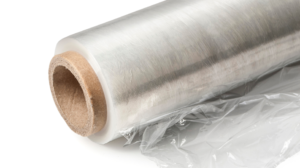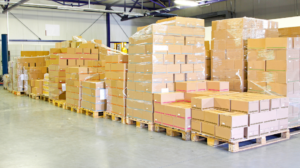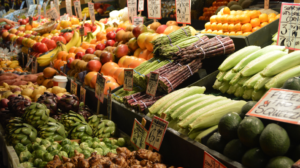How a manufacturer stepped into the PCR market
Industrial products maker Wearwell has developed a foundation for its recycled PP usage – both figuratively and literally.
The Tennessee-based manufacturer of mats, pads and other products has created an industrial platform with 100% post-consumer PP tiles that workers walk and stand on. At the same time, the “Foundation” modular platform system is providing Wearwell with additional opportunities to mold parts from post-consumer resin (PCR), which it is currently buying from KW Plastics.
In an interview with Plastics Recycling Update, the lead product developer discussed how Wearwell overcame the challenges in using PCR and why the company is committed to using PCR, even if its price floats above virgin’s.
“There are times where we probably could have gone out there and gotten some virgin material for less than we were paying for the recycled, but that’s something that we have basically committed we’re going to do it this way, because it’s the right thing to do,” Phil Huss, Wearwell’s product and engineering manager, told Plastics Recycling Update. “Unless, heaven forbid, we literally can’t get the PCR that we need, we’re going to stick to it.”
Based in Smyrna, which is just outside of Nashville, Wearwell is a manufacturer of anti-fatigue mats and pads used in a variety of industrial and commercial settings. From the company’s beginning, it used recycled tires to produce rubber mats, so using recycled materials is embedded in the company’s history, Huss noted. Wearwell’s website notes that over two dozen of its products have some level of recycled content.
But when it comes to injection molding, before the Foundation, the company’s experience was limited to flexible PVC parts, Huss said.
Overcoming molding challenges
When it began looking to develop the Foundation – work that began in earnest in 2018 – the company initially explored recycled HDPE but found that the polymer didn’t have the impact resistance needed for the tiles, Huss said. Wearwell reached out to different vendors and landed on KW, which supplies black 100% PCR PP pellets that have the impact resistance and strength needed for the application, he said.
Located in Troy, Ala., over 300 miles from Smyrna, KW is the world’s largest reclaimer of PP. The company recently installed another washline, this one dedicated to PP, that will boost KW’s recycling capacity by 100 million pounds per year.
The main hurdle Wearwell experienced in using the PP was in the molding process, Huss explained. Wearwell conducted trials using the PP in the company’s existing molds for flexible PVC products but found that changes were needed to ensure the part ejected. When the PP cools in the mold, it shrinks and hugs the mold, so Wearwell had to add hydraulic cylinders and additional ejector pins to push the part out, he said. It only took a couple of weeks to solve the issue.



